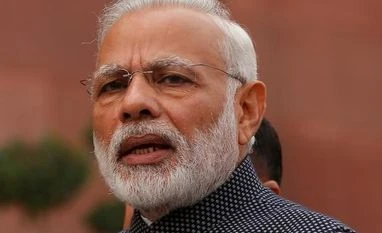"Just like gold we will emerge glowing from this fire. The main reason behind this confidence is our people," said the prime minister, defending the demonetisation move in his monthly radio broadcast "Mann ki Baat".
Modi said he had cautioned that there would be inconveniences caused by the move and that "we would face new problems".
"I had said it will take about 50 days for the situation to normalise. It is not easy to get rid of the 70-year-old problem" of corruption and black money, he emphasised.
More From This Section
"Your support despite severe problems touched me. You have not wavered despite efforts to misguide you," he said in his address to the nation, weeks after the surprise move that has caused unprecedented crash crunch in the country.
"I want to tell my small merchant brothers and sisters, this is the chance for you to enter the digital world," Modi said speaking in Hindi, urging them to use mobile banking applications and credit-card swipe machines.
"It's correct that a 100 percent cashless society is not possible. But why don't we make a beginning for a less-cash society in India?," Modi said. "We can gradually move from a less-cash society to a cashless society."
Ahead of the address, the prime minister also called on the nation, especially the youth, to embrace digital banking.
Modi urged technology-savvy young people to spare some time teaching others how to use digital payment platforms.
"Time has come for everyone, particularly my young friends, to embrace e-banking, mobile banking & more such technology," the prime minister tweeted.
However, the Opposition has been resolute on its stand that the poor and rural population are not tech savvy, which is why digital banking is not a viable option for them, adding that those living in regions mostly comprising villages do not even have bank accounts.
More than 90% of consumer purchases in India are transacted in cash, Credit Suisse estimates. While a smartphone boom and falling mobile data prices have led to a surge in digital payments in recent years, the base still remains low.
)